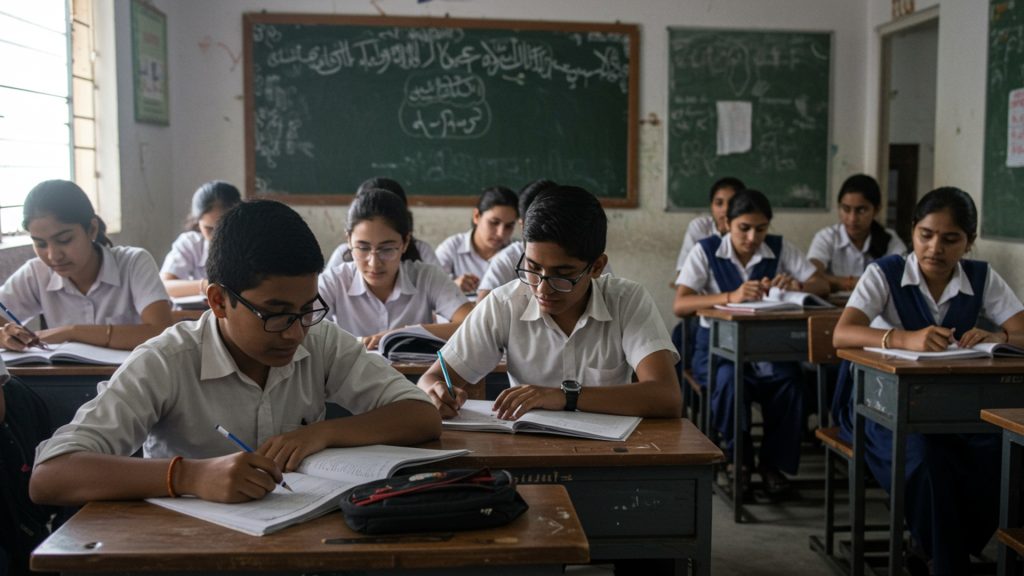The Uttarakhand Cabinet has made a major decision, giving more schools and colleges minority status. This crucial change means these education places will now have special rights, letting them manage their own affairs, including how they choose students and hire people. The move, agreed upon at a key meeting in Dehradun, aims to help specific groups run their schools and colleges more easily. This quick shift in policy is already causing wide talks about fair chances and equal access to education for all people in the state, directly affecting many thousands of students and teachers.
Historic Step for Minority Education in Uttarakhand
The Uttarakhand Cabinet has recently taken a significant step by approving the Uttarakhand Minority Educational Institutions Bill, 2025. This decision, made on Sunday, August 17, 2025, aims to bring a new framework for educational institutions run by minority communities across the state. The Bill is set to be presented in the upcoming session of the Legislative Assembly, which begins on August 19. Until now, the status of minority educational institutions was primarily given only to the Muslim community under state law. The new Bill seeks to extend the benefits and recognition of minority educational institutions to other minority communities as well. These communities include Sikhs, Jains, Christians, Buddhists. Parsis.
Changes to Current Laws
A key part of this new Bill involves the repeal of existing laws related to madrasa education. The Uttarakhand Madrasa Education Board Act, 2016. the Uttarakhand Non-Government Arabic and Persian Madrasa Recognition Rules, 2019, will no longer be in effect from July 1, 2026. This new legislation is being called the first of its kind in the country. It aims to create a clear and open process for granting official status to educational institutions established by minority groups in Uttarakhand. The goal is to ensure both the quality and excellence of education provided by these institutions.
New Authority and Rules
To manage this expanded scope, the Bill proposes the formation of a new body: the “Uttarakhand State Authority for Minority Education.” This authority will be responsible for granting minority educational institution status. The Bill also includes several vital conditions for institutions to receive and maintain this status:
- Mandatory Recognition: Any educational institution started by Muslim, Christian, Sikh, Buddhist, Jain, or Parsi communities must get recognition from this new Authority to be considered a minority educational institution.
- Protection of Rights: The new law states that it will not interfere with how minority educational institutions are set up and managed. But, it will make sure that high standards of education are kept.
- Basic Requirements: To get recognition, educational institutions must be registered under common laws like the Societies Act, Trust Act, or Companies Act. Also, the land, bank accounts. other property must be officially owned by the institution.
- Curriculum Standards: The new authority will have the power to decide the curriculum for these institutions. It will also ensure that the education provided meets the standards set by the Uttarakhand Board of School Education.
- Language Recognition: The study of languages like Gurmukhi and Pali will also be allowed in recognized minority educational institutions.
- Withdrawal of Status: Official recognition can be taken back if there is financial mismanagement, a lack of transparency, or if the institution carries out activities that go against religious and social harmony.
Government Views on the Decision
Chief Minister Pushkar Singh Dhami commented on the approval of the Uttarakhand Minority Educational Institutions Bill.
“The Uttarakhand Minority Educational Institutions Bill marks a significant and historic step in the field of education in Uttarakhand. Our government has consistently worked towards protecting the constitutional rights of minority communities and providing equal opportunities in education. It will not only enhance transparency but also ensure the quality and excellence of education. Communities such as Muslims, Sikhs, Jains, Christians, Buddhists and Parsis will benefit from it. State government’s goal is to promote social harmony and inclusive development through education.”
Officials involved in the Bill’s planning have also highlighted that the state government will oversee how these institutions operate and will issue directions as needed. They emphasized that the Bill aims for a transparent process for granting recognition to minority educational institutions while focusing on quality and excellence in education. They also stated that the constitutional rights of minorities will be safeguarded.
Broader Context of State Policies
This move by the Uttarakhand government comes as part of a series of recent policy changes in the state. Uttarakhand has recently been in the news for introducing a Uniform Civil Code (UCC), which aims to regulate personal laws for all citizens, including those related to marriage, divorce. adoption. The state government has also taken action against some madrasas that were reportedly not registered with the state Madrasa Board or the education department. These steps reflect the government’s focus on regulating various aspects of social and educational life within the state. The new Bill for minority educational institutions is seen as another measure to streamline and standardize the education system, ensuring that all recognized institutions operate under clear guidelines and maintain educational quality.

